Advancing Preclinical Research with Modern Data Automation Techniques
The safety, efficacy, and toxicology testing at AmplifyBio (A-SET) often requires the processing of data generated by sophisticated lab instruments, followed by complex biostatistical analysis to achieve the desired results for any given preclinical study. Performing this intricate data analysis requires a considerable amount of effort and precise execution, which can lead to a depletion of resources and a lengthy turnaround time (TAT) when relying solely on simple IT tools like spreadsheets.
The AmplifyBio team of IT engineers and data scientists came up with a more efficient solution using modern data automation practices and ETL (extract, transform, load) techniques to reduce the time it takes to perform repetitive analyses and lower the number of Quality Control (QC) touchpoints, thus addressing ongoing challenges.
The benefits of this new data analysis process are significant in both time and quality of analysis. The standard methodology would be to look at data sets in silos, reaching individual conclusions. With that manual methodology, it takes scientists months to correlate data appropriately and in a way that gives the study sponsor the full picture they require to really understand drug performance. With AmplifyBio’s new data analysis process, a researcher can analyze a biodistribution pattern’s correlation to the immune response simultaneously rather than individually, improving both the time taken and the quality of interpretation. Another potential benefit is that, over time, the instantaneous linkage of in vitro data to in vivo data could help in the industry-wide effort to reduce the volume of in vivo testing required to glean adequate safety data. Automating bioinformatics in this way, and performing multiple types of statistical analysis in seconds, leads to turning around reports in weeks that would otherwise take months or multiple studies to complete. This has led to a significant reduction in costs and turnaround time and has allowed researchers to access their data sets faster and more efficiently.
“We were able to execute a complex biodistribution study in minutes instead of weeks. More importantly, being able to see the biodistribution so instantaneously gave me, along with the study sponsor, an opportunity to add additional analyses we realized would be important. The saved time allows for multi-dimensional interpretation in a way that reporting months later does not”, says Victoria Best, Ph.D., Director of Translational Sciences and Analytical Strategy.
Moreover, the data is now organized and ready to hand off, which makes it easier for researchers to share their findings with colleagues, regulators, and other stakeholders, driving more efficient decision-making. Overall, the use of modern data automation practices and ETL techniques has had a significant impact on AmplifyBio’s preclinical research, and the company expects to continue to leverage these tools moving forward. The initial implementation will be across the company’s qPCR, dPCR, and rtPCR platforms but will soon be applied more broadly to other analytics.
“The implementation of this data pipeline represents a major milestone for AmplifyBio, as it advances our digital capabilities and aligns with our strategy to modernize and automate our laboratory operations.”, noted Karim Khoury, VP of Information Systems.
AmplifyBio’s investment in modern data automation practices and ETL techniques is a game-changer in the industry. By automating the bioinformatics process, the company has reduced costs and turnaround time and increased the value of its preclinical research. This not only benefits AmplifyBio but, more importantly, has the potential to drive significant advancements in the development of innovative therapies to treat a wide range of diseases.
Contact Us
As an expert contract research organization (CRO), AmplifyBio leverages decades of experience to create modern commercial drug development solutions. From preclinical CRO needs to cell and gene therapy and advanced therapy testing, our accredited team designs innovative paths to produce globally recognized studies, services, and more.

